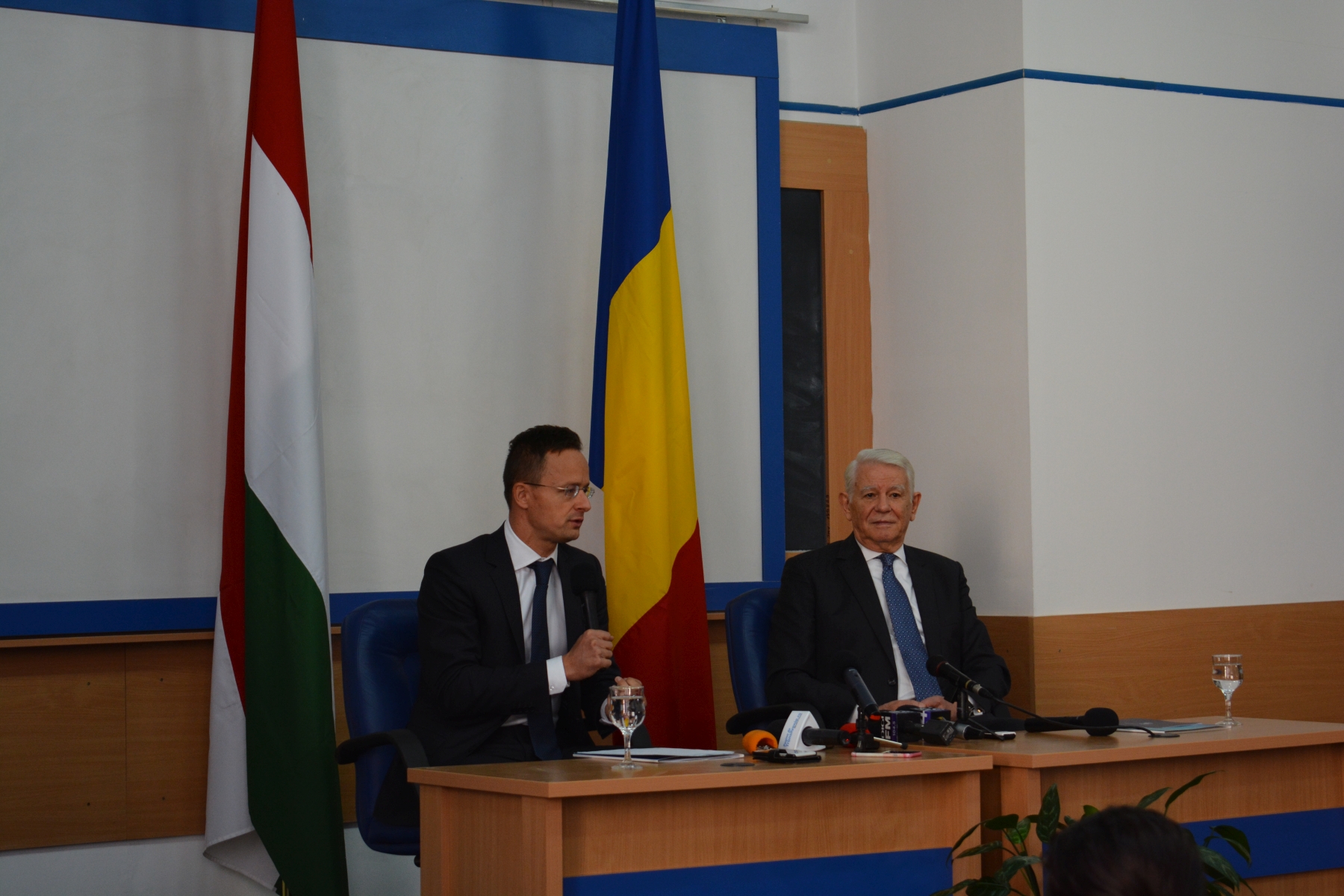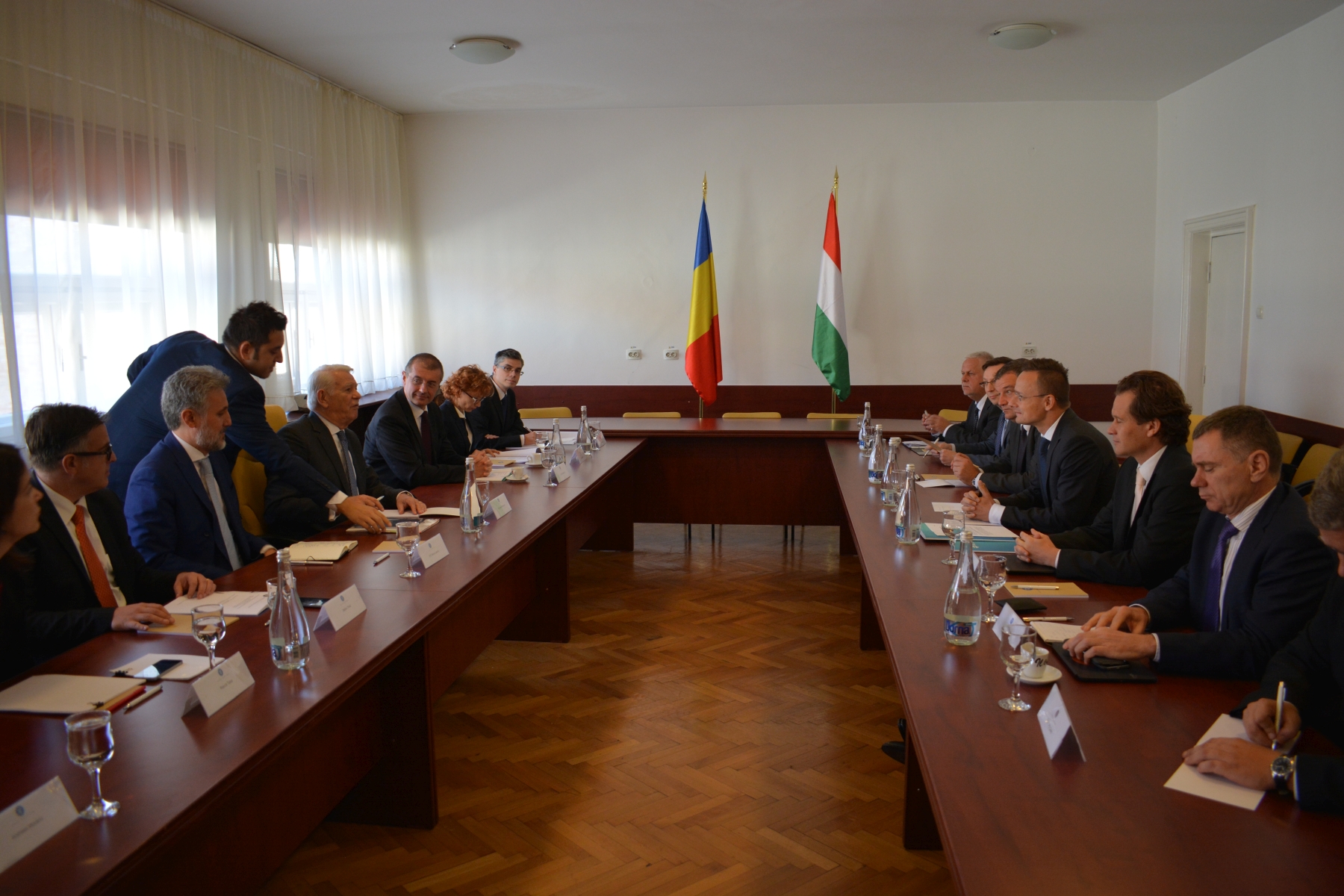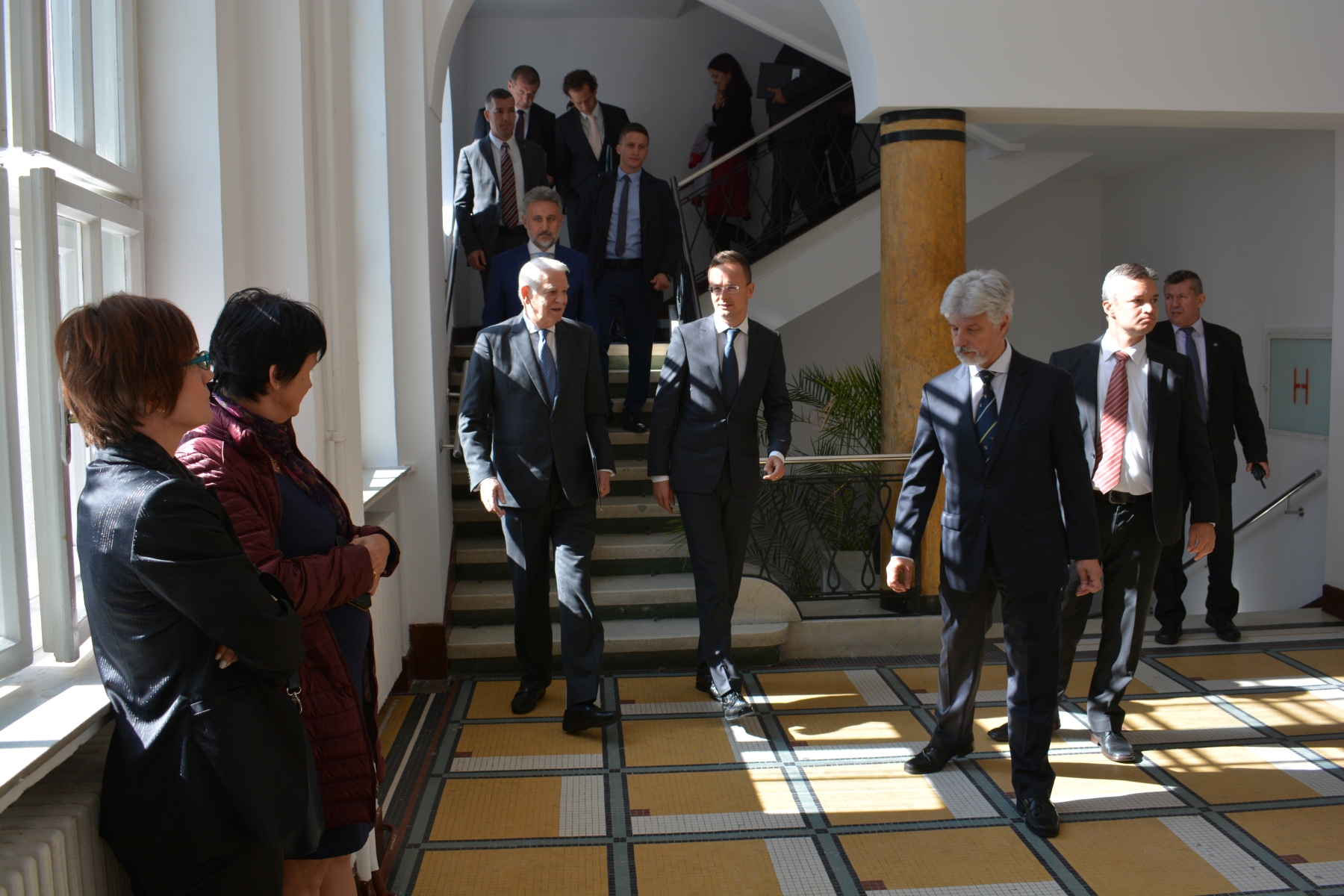Péter Szijjártó Minister of Foreign Affairs and Trade of Hungary payed a working visit to Cluj-Napoca on 2nd October, 2017, where he met his Romanian counterpart Teodor Melescanu, Minister of Foreign Affairs Romania, the leadership of Democratic Alliance of Hungarians in Romania (RMDSZ) in Cluj-Napoca, Mr. Emil Boc the major of Cluj-Napoca and participated at the opening ceremony of the Academic year of the Hungarian Section of the Babes-Bolyai University and met the dean of the Sapientia University.

Minister Szijjártó stated, it is totally natural and normal for Hungary and Romania to take joint action with regard to the amendment of Ukraine’s Act on Education. The amendment to the Act violates the Association Agreement between Ukraine and the European Union, the conclusion of which was supported by both Hungary and Romania, and accordingly our two countries now regard the events as a ‘stab in the back’. The fact that both the Language Act and the Nationality Act are currently before Ukraine’s Parliament is also cause for concern. This is one of the reasons why it is important for our two countries to take joint action with regard to the Education Act, because this sends a clear message that Ukraine’s Parliament should not adopt the new legislation currently before it, because that would only serve to further restrict the rights of minorities.

Minister Szijjártó highlighted, Hungary has an interest in establishing and maintaining a strategic relationship with Romania, in view of the fact that it is much better to build joint success stories than to handle conflicts. The Minister said he and his Romanian counterpart had agreed that national minorities must be regarded as resources in their bilateral relations. Mr. Szijjártó also mentioned that he hoped the situation surrounding the Catholic School in Targu Mures would be successfully settled, and that cooperation between the RMDSZ, the Catholic Church and Romania’s governing coalition would indeed solve the situation at the earliest opportunity.
The number of motorway connections between Hungary and Romania will be increased from one to two by 2020, but the two countries should be connected ‘to a much greater extent’, and accordingly it is hoped that the ten border crossing points that currently have only operated at the weekends will remain permanently open in the near future. Transport development in Europe currently means fundamentally high-speed railway development projects, and for this reason we are supporting plans for the construction of a high-speed railway line between Budapest and Cluj-Napoca. It is good news with relation to energy security that, based on the agreement between system operators, we will already have the opportunity to transport a significant quantity of natural gas to Hungary via Romania by 2019, and that by 2022 the distribution of 4.4 billion cubic metres of natural gas will become possible between the two countries.



